Why chick not growing?
Have you ever held a tiny, fluffy chick in your hands and marveled at the promise of growth and life? It’s a heartwarming experience for any poultry enthusiast. But what happens when that little ball of feathers doesn’t seem to be growing as it should? Your excitement might turn into concern, and rightly so. In this comprehensive guide, we’re diving deep into the world of chicks that aren’t growing as expected, exploring the reasons behind it, and providing you with the knowledge you need to ensure your chicks thrive.
The Early Stages of Chick Development
Hatching and Initial Growth
Hatching is a miraculous process, but it’s just the beginning of your chick’s journey. The moment they break free from their eggshell, they rely on their yolk sac for nourishment. It’s like their own packed lunch from the egg. Over the next few days, they’ll absorb this yolk, providing them with essential nutrients.
Tip: Let’s take a look at Sarah’s experience. She’s a first-time chick owner, and her excitement knew no bounds when her chicks hatched. She diligently provided clean water and chick starter feed as soon as they dried off. “I watched them peck around the brooder, and it was amazing to see their growth,” Sarah says. “They were like little miracles in motion.”
Nutritional Needs of Newly Hatched Chicks
Your chicks may be tiny, but their nutritional needs are immense during the early stages. They require a balanced diet rich in protein, vitamins, and minerals. Remember, they’re growing rapidly!
Tip: Mary, a seasoned poultry keeper, shares her wisdom: “I’ve seen chicks grow well on a diet of chick starter feed. It’s specially formulated for their needs. But don’t just take my word for it; consult with your local feed supplier for the best options.”
Environmental Factors
Chick growth isn’t just about food; their environment plays a crucial role too. Maintain a warm and clean brooding space, as these fragile creatures are highly sensitive to temperature fluctuations and hygiene issues.
Tip: John, an experienced poultry farmer, stresses the importance of proper brooder management. “I once had a batch of chicks that weren’t growing well,” he recalls. “It turned out the brooder was too drafty, and they were losing body heat. After I fixed that, their growth picked up.”
Signs of Stunted Growth
Identifying Abnormal Growth Patterns
The first step to addressing growth concerns is recognizing them. Keep a watchful eye on your chicks and look for signs of abnormal growth, such as a noticeable size difference compared to their peers.
Tip: Regularly weigh your chicks to track their progress and catch any issues early on.
Potential Causes of Stunted Growth
Stunted growth can have various causes. It could be due to health problems, poor nutrition, or environmental stressors. Let’s delve deeper into these factors:
Health Issues
Chicks are susceptible to diseases like coccidiosis and respiratory infections. These ailments can hinder their growth and overall well-being.
Tip: Nancy, a backyard chicken enthusiast, had a scare when her chicks started showing signs of lethargy and droopy wings. “I immediately consulted a vet,” she says. “It turned out they had a respiratory infection. With the right medication, they recovered, and their growth resumed.”
Poor Nutrition
Chicks, like growing kids, need a balanced diet. Inadequate protein, vitamin deficiencies (especially Vitamin D and E), or mineral imbalances can lead to growth problems.
Tip: Ensure your chicks have access to fresh water and the right chick feed. Avoid overfeeding or underfeeding.
Environmental Stressors
Stress can be a growth inhibitor. Overcrowding, improper lighting, and excessive handling can stress out your chicks.
Tip: Give your chicks plenty of space, provide appropriate lighting, and handle them gently to minimize stress.
Health Factors Affecting Chick Growth
Common Health Issues in Chicks
Chicks can fall prey to various health issues. Coccidiosis, for instance, is a common gastrointestinal disease that can hamper growth.
Tip: Regularly clean the brooder to reduce the risk of disease transmission.
Symptoms to Watch For
How can you tell if your chick is unwell? Keep an eye out for lethargy, diarrhea, and labored breathing – these are telltale signs that something may be wrong.
Tip: Isolate any sick chicks to prevent the spread of illness to others.
Prevention and Treatment Options
Vaccination, medication, and quarantine procedures can help prevent and manage health issues in your flock.
Tip: Consult with poultry experts for guidance on vaccination schedules and proper medication.
Nutritional Factors Influencing Growth
Essential Nutrients for Chick Growth
Protein, vitamins, and minerals are the building blocks of healthy chick growth. Make sure their diet is rich in these essentials.
Tip: Read the label on your chick starter feed to ensure it meets their nutritional requirements.
Common Nutritional Deficiencies
Protein deficiency, vitamin shortages (particularly Vitamin D and E), and mineral imbalances can hinder growth. Be vigilant about their diet.
Tip: Offer treats like crushed eggshells or oyster shell for calcium supplementation.
Selecting Appropriate Chick Feed
Choosing the right feed is critical. Starter feed is specially formulated for young chicks and provides them with the nutrients they need.
Tip: Transition to grower feed when your chicks are around 6-8 weeks old to support their continued growth.
Environmental Stressors and Chick Growth
Impact of Overcrowding
Just like humans, chicks need their personal space. Overcrowding can lead to stress, impacting their growth and well-being.
Tip: Ensure your brooder is spacious enough to accommodate your chicks comfortably.
Temperature and Light Considerations
Maintain the ideal brooding temperature and provide appropriate lighting. These factors can significantly affect chick growth and behavior.
Tip: Use a red heat lamp to mimic natural daylight and minimize disturbances during the night.


Handling and Stress Management
While cuddling your chicks is tempting, excessive handling can stress them out. Handle them gently and minimize unnecessary disturbances.
Tip: Limit handling to short and gentle sessions, allowing your chicks time to rest.
Monitoring Chick Growth
Keeping Growth Records
Tracking your chicks’ growth is essential. Maintain a growth record, noting their weights and any observations.
Tip: A simple notebook can serve as your chick growth journal.
Growth Charts and Milestones
Understanding typical growth patterns is crucial. Familiarize yourself with growth charts and milestones to assess your chicks’ progress.
Tip: Don’t panic if growth seems slow initially; chicks can have growth spurts at different times.
Seeking Professional Help
When to Consult a Veterinarian
If your chicks’ growth issues persist or worsen, it’s time to seek professional help. Don’t delay; a veterinarian can diagnose and treat underlying problems.
Tip: Trust your instincts – if something doesn’t seem right, it’s better to consult an expert.
Diagnostic Tests and Examinations
Veterinarians may conduct tests and examinations to pinpoint the cause of growth problems. Be prepared to share your observations and growth records.
Tip: Be proactive and communicate openly with your vet.
Collaborating with Poultry Experts and Forums
Joining poultry communities and forums can provide valuable insights and support from experienced chick owners.
Tip: Online forums and local poultry clubs are great resources for sharing experiences and seeking advice.
Case Studies and Success Stories
Real-Life Examples of Chick Growth Challenges
Let’s dive into some real-world stories of chick owners who faced growth challenges and overcame them.
Tip: Learning from others’ experiences can provide inspiration and guidance.
Sarah’s Story
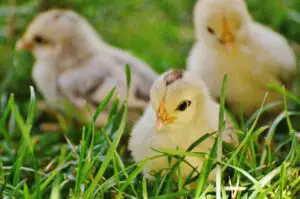

Mark’s Journey
Mark’s chicks were thriving until they suddenly stopped growing. He suspected a nutritional issue. After consulting with a local poultry expert, he discovered that the chick starter feed he was using was low in protein. Switching to a higher-protein feed helped his chicks regain their growth momentum.
How These Issues Were Resolved
Discover the strategies and solutions these chick owners employed to ensure their chicks’ healthy growth.
Tip: Every situation is unique, so be open to trying different approaches.
Conclusion
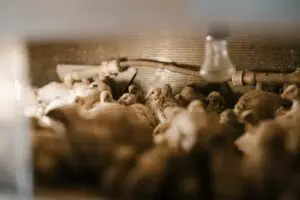

In the world of chick rearing, ensuring proper growth is crucial for their overall health and happiness. By understanding the early stages of chick development, recognizing signs of stunted growth, addressing health and nutritional factors, managing environmental stressors, and seeking professional help when needed, you can give your chicks the best chance to thrive. Remember, a healthy and growing chick is a source of joy and fulfillment for any poultry enthusiast. So, go ahead and embark on this exciting journey with your feathered friends. Happy chick raising!
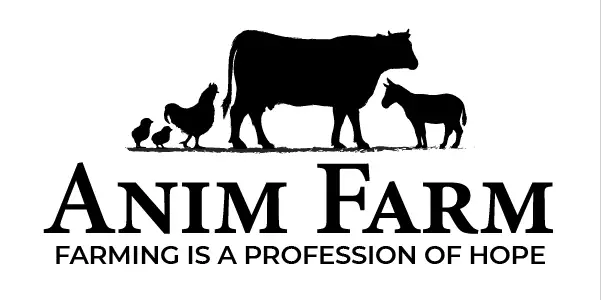
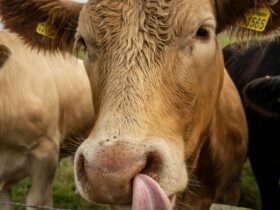
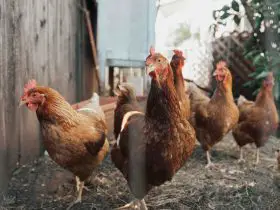

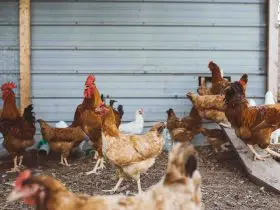
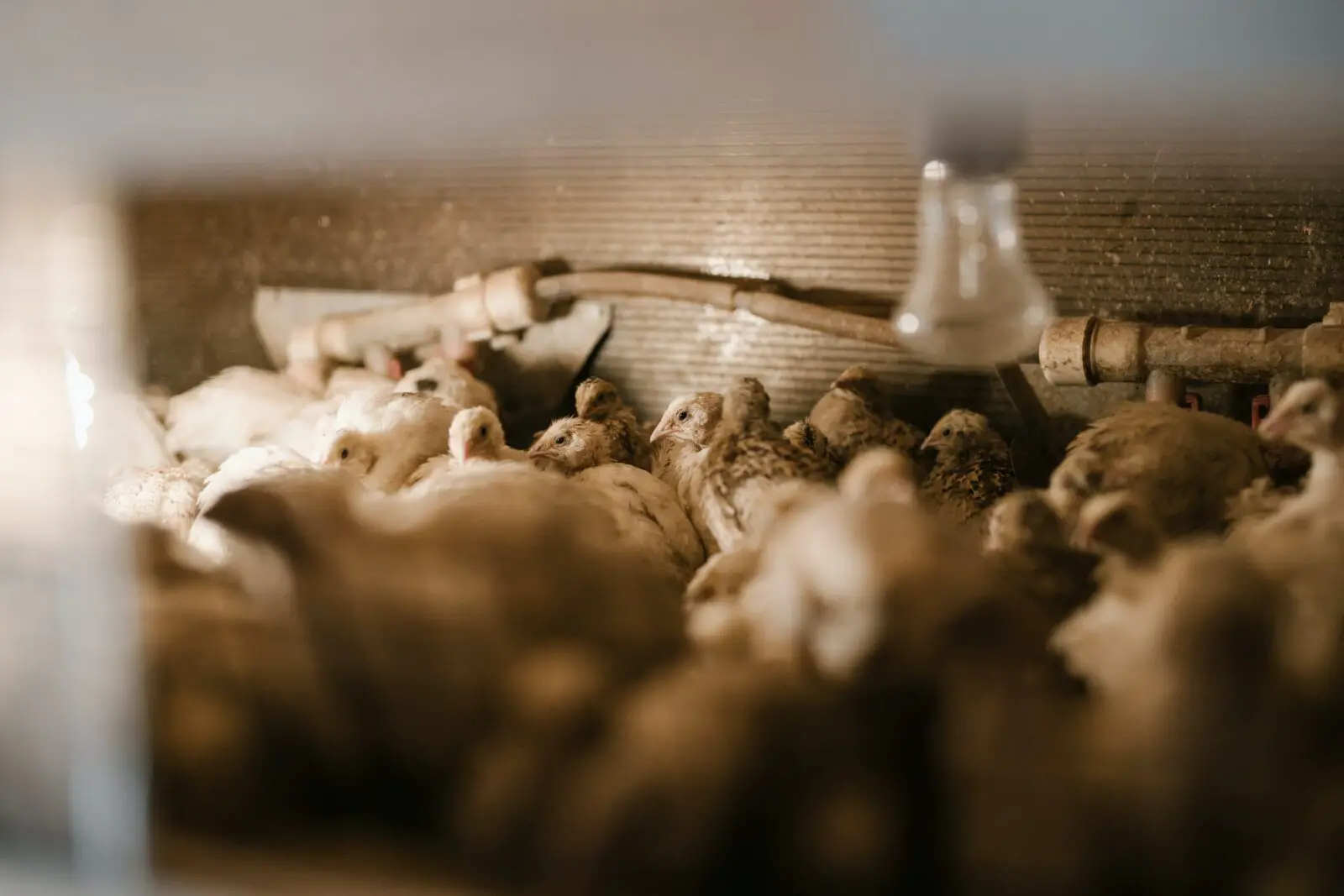

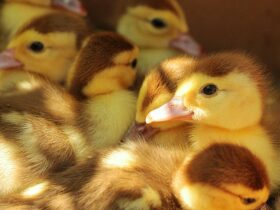
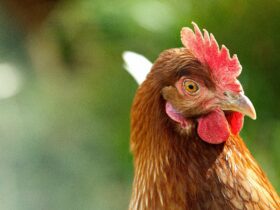

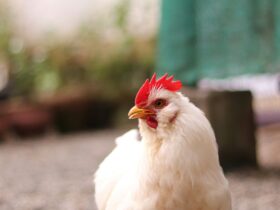

Hello!! Welcome to Anim Farm